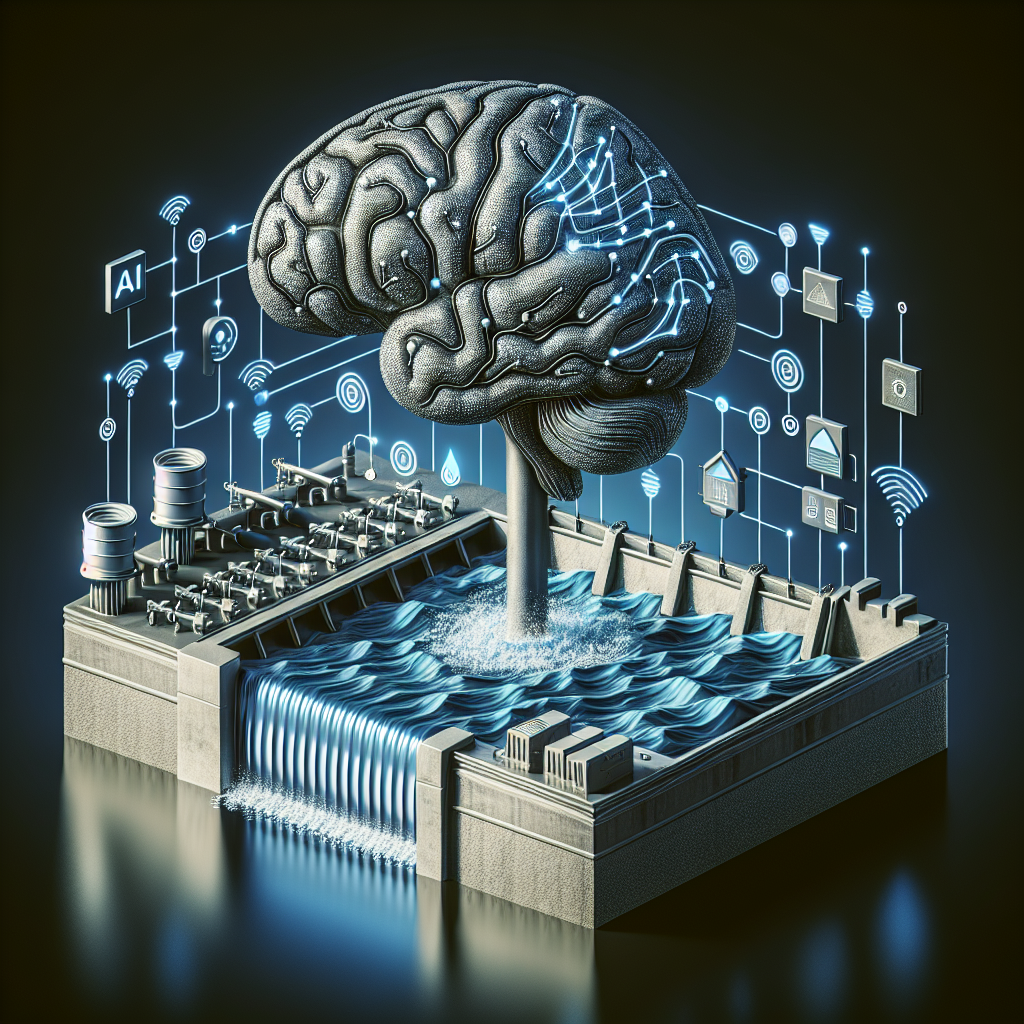In recent years, the implementation of artificial intelligence (AI) solutions for smart water management has gained significant traction. With the increasing demands on water resources and the challenges posed by climate change, it has become imperative for water utilities and municipalities to adopt innovative technologies to effectively manage their water systems. AI offers a range of benefits for smart water management, including improved efficiency, cost savings, and enhanced decision-making capabilities.
AI solutions can help water utilities and municipalities optimize their water distribution systems by analyzing large volumes of data in real-time. By leveraging AI algorithms, water managers can detect leaks, predict equipment failures, and optimize water flow to reduce wastage. These predictive analytics capabilities enable proactive maintenance, saving time and resources while ensuring the reliable delivery of clean water to consumers.
Additionally, AI can help water utilities and municipalities improve their water quality monitoring processes. By analyzing data from various sources, including sensors, satellites, and social media, AI algorithms can detect contaminants and pollutants in the water supply, enabling timely interventions to prevent public health risks. This real-time monitoring capability not only enhances water quality but also builds trust and confidence among consumers.
Furthermore, AI solutions can assist in optimizing water treatment processes by identifying the most efficient treatment methods based on water quality parameters. By analyzing historical data and simulation models, AI algorithms can recommend the best treatment strategies to achieve desired water quality standards while minimizing costs and energy consumption.
One of the key advantages of AI in smart water management is its ability to adapt to changing conditions and learn from experience. Machine learning algorithms can continuously improve their performance by analyzing new data and adjusting their models accordingly. This adaptive capability enables water utilities and municipalities to stay ahead of emerging challenges and optimize their operations in real-time.
Despite the numerous benefits of AI in smart water management, there are also challenges and considerations that need to be addressed. Data privacy and security concerns, interoperability with existing systems, and the need for skilled personnel to operate AI solutions are some of the key challenges that water utilities and municipalities may face when implementing AI technologies. It is essential for organizations to develop comprehensive strategies and policies to address these challenges and ensure the successful integration of AI into their water management practices.
In conclusion, the implementation of AI solutions for smart water management holds great promise for improving the efficiency, reliability, and sustainability of water systems. By leveraging AI algorithms for predictive analytics, real-time monitoring, and adaptive optimization, water utilities and municipalities can enhance their decision-making processes and deliver high-quality water services to consumers. With the right strategy and approach, AI can revolutionize the way water resources are managed, ensuring a more resilient and sustainable water future for all.
FAQs:
Q: What is AI in the context of smart water management?
A: AI, or artificial intelligence, refers to the use of computer algorithms to analyze and interpret data, make predictions, and optimize processes in the context of smart water management. AI technologies such as machine learning and predictive analytics can help water utilities and municipalities improve the efficiency, reliability, and sustainability of their water systems.
Q: How can AI help in detecting leaks in water distribution systems?
A: AI algorithms can analyze data from sensors and meters to detect anomalies in water flow patterns, which may indicate leaks in the distribution system. By continuously monitoring and analyzing data in real-time, AI can help water managers identify and address leaks promptly, reducing water wastage and ensuring the reliable delivery of clean water to consumers.
Q: What are the benefits of using AI for water quality monitoring?
A: AI can help water utilities and municipalities improve their water quality monitoring processes by analyzing data from various sources to detect contaminants and pollutants in the water supply. By enabling real-time monitoring and predictive analytics, AI can enhance water quality, prevent public health risks, and build trust and confidence among consumers.
Q: How can AI optimize water treatment processes?
A: AI algorithms can analyze historical data and simulation models to recommend the most efficient treatment methods based on water quality parameters. By optimizing treatment processes, AI can help water utilities and municipalities achieve desired water quality standards while minimizing costs and energy consumption.
Q: What are some of the challenges of implementing AI in smart water management?
A: Data privacy and security concerns, interoperability with existing systems, and the need for skilled personnel to operate AI solutions are some of the key challenges that water utilities and municipalities may face when implementing AI technologies. It is essential for organizations to develop comprehensive strategies and policies to address these challenges and ensure the successful integration of AI into their water management practices.

